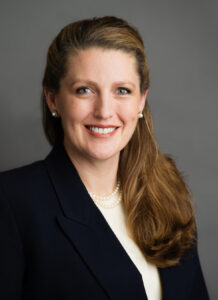
Each year, the Belmont Citizens Forum asks Select Board candidates questions about issues facing our town. This year, Elizabeth Harmer Dionne provided answers. She was limited to 1,000 words.
BCF: During the time you have lived in Belmont, in what ways has Belmont improved as a place to live, learn, work, and connect? In what ways has the town “lost ground” as a place to live, learn, work, and connect?
Dionne: In the 12 years since my family and I moved to Belmont, I’ve seen— and contributed to—a series of heartening improvements to the town. I have seen real infrastructure improvements: police station, middle/high school, library, pool, (hopefully) rink. I’m proud to have led the Community Preservation Committee in distributing funds for renovations of town assets: fields, parks, affordable housing, historic sites.
The town has also benefited greatly from the influx of new residents, who enhance racial and ethnic diversity and bring great ideas for community improvement.
Yet challenges persist, due mainly to the town’s unstable financial underpinnings. Town and school services alike have suffered for lack of revenue due to Proposition 2½ limits. Increased property taxes and decreased affordability have forced out older residents and reduced economic diversity. We’ve diminished the town’s planning capacity, and we’ve gone backwards in terms of learning and mental health due to Covid.
BCF: Will Belmont be just as attractive for residents of the “town of homes” 10 or 20 years from now? Why or why not?
Dionne: Despite the fiscal challenges, I am optimistic that, with planning and carefully managed growth, Belmont will be just as attractive and even more vibrant in the years ahead. Some strategies we should consider: addressing crosstown traffic; supporting healthy commercial centers and small businesses; finishing the Community Path; obtaining home rule legislation to give Belmont greater ability to protect strategic open space (preventing projects like Belmont Hill School’s massive parking lot plan).
BCF: What are your concerns related to climate change, and what steps should the town take to address those risks?
Dionne: Belmont has made great strides in envisioning how we can combat climate change. I voted for Belmont’s Climate Action Roadmap and continue to support a multifaceted approach.
Foremost, the town should partner with Belmont Light to promote strategic electrification, examine electrification of the town’s vehicle fleet, and coordinate the installation of charging stations for town and private EV [electric vehicle] owners. Electrification of energy uses, including heat pumps and electric vehicles, reduces our dependence on fossil fuels and taps into the increasingly green regional electric grid.
We should also use strategic rezoning. As Max Colice noted in these pages in January, rezoning Audubon/Habitat, Lone Tree Hill, and Rock Meadow—from single-family residence to open space—would reflect current use and protect these valuable resources.
Because of climate change, “100-year” storms now occur more frequently. We need to mitigate resulting flood risks by following Belmont’s Stormwater Management and Erosion Control General Bylaw. By using up-to-date rainfall data, rather than decades-old data (as the DEP {Department of Environmental Protection}standard does), we can develop larger capacity runoffs to manage increased stormwater volumes.
BCF: Reflecting on the Collins Center Report, Financial Organization Structure Review, Town of Belmont, Massachusetts, what are the town’s most significant fiscal challenges and
the town’s most pressing organizational shortcomings? How would you address them?
Dionne: As a multiyear member of the Warrant Committee, I’ve been aware of the core challenges facing Belmont since long before the Collins Center Report confirmed our concerns. Our town has a structural deficit—recurring expenditures exceed recurring revenues, and soon we will not be able to patch together a solution as we have in previous years. Our decentralized political organization impedes strategic decision-making. We must solve both problems.
On the financial side, we need ongoing budget coordination between the Select Board and the School Committee, which manages the majority of the town’s operating budget. The Select Board should continue to root out inefficiencies in the parts of the town it can influence (e.g., improving retirement fund investment returns, reducing expenses of the Belmont Retirement System Board).
I am particularly interested in updating the town’s zoning bylaw, making it much more supportive of small businesses and appropriate commercial development to enhance commercial tax revenue. Working with the Planning Board, the Vision 21 Implementation Committee, the MBTA Communities Advisory Committee (MBTA-CAC), small businesses, developers, and residents, the Select Board should spearhead efforts to: meet the state requirements for MBTA Communities (combining mixed use with multifamily zoning by right); balance neighborhood preservation with revitalized commercial centers and public transit; allow additional business uses (e.g., restaurants or boutique hotels) as-of-right; allow additional, carefully planned commercial development; and restore necessary staff positions in the Office of Community Development (OCD).
The Collins Center report also accurately reported weaknesses in our administrative processes. No single entity has the authority to make difficult but necessary decisions regarding spending priorities and amounts, so the town flounders. I believe we should move to an appointed treasurer (Ballot Question 2) to ensure professionalism in that office, and toward an appointed Board of Assessors as well, to ensure consistent, coordinated, and strategic approaches to property assessments—which will allow the town to assess non-residential properties at market value and facilitate implementation of requests for PILOT (Payments in Lieu of Taxes) from nonprofits. I support moves to streamline the town’s 67 citizen committees, combining complementary committees to strengthen their membership and voice, while easing administrative burdens on town staff.
BCF: How would you guide the town toward needed improvements in infrastructure, such as building maintenance and modernization, electrification, stormwater management, and water quality compliance?
Dionne: To support infrastructure improvements, I would encourage the town to follow its own financial policies and increase the proportion of funds devoted to capital projects to at least 5% of the operating budget (up from its current 2%). I’ve noted above (Question 3) how I would support electrification and stormwater management efforts. Complying with increasingly rigorous state and federal requirements under the MS4 permit (Municipal Separate Storm Sewer System) will require additional staffing in OCD. Finally, the Department of Public Works program to replace 40% of all water mains within a 30-year period (begun in 1995) is well underway.
BCF: In 2021 Governor Baker signed into law a new measure that will require cities and towns with MBTA stations to permit apartment construction within 0.5 miles. How should Belmont move ahead with its housing production plan?
Dionne: See my answer to Question 4 regarding the town’s zoning bylaw. I support increased housing and mixed-use development. MBTA-CAC will include the Housing Production Plan in its work once it is finalized. MBTA-CAC will seek extensive public input and engagement to propose the best zoning plan for density, height, and location.
BCF: Briefly describe your vision for preserving (or “evolving”) and enhancing Belmont’s quality of living, learning, working, and connecting.
Dionne: I am running for Select Board to enhance Belmontonians’ quality of life. That means implementing a sound financial plan that promotes appropriate development of housing, commercial space, and small businesses. Such a plan will allow us to achieve what we all want—an interconnected, sustainable, and welcoming town with robust services, excellent schools, beautiful parks and athletic facilities, protected open space, and vibrant commercial centers with thriving restaurants, shops, and services. Working together with Belmont’s dedicated town staff and engaged residents, I am confident that we can realize this future.



Sorry, the comment form is closed at this time.